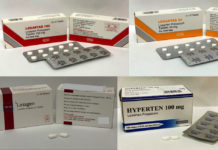 |
| Fruits – a rich source of fiber |
Dietary Fiber has always been known to have many health benefits . Besides the well known benefits
. Besides the well known benefits of making regulating bowel movements, fiber also has many lesser known effects. For example, soluble fiber found in beans, oats and flaxseed may help lower total “bad” cholesterol levels in the blood.
of making regulating bowel movements, fiber also has many lesser known effects. For example, soluble fiber found in beans, oats and flaxseed may help lower total “bad” cholesterol levels in the blood.
Fiber also helps improve blood sugar levels by slowing the absorption of sugar in the gut – this is good news for weight watchers on a low GI diet, and of course, for diabetics. In addition, fiber adds bulk to your food – giving a sense of fullness, hence decreasing calorie intake.
For a long time, fiber is also thought to reduce the incidence of heart disease. A new review, published in the the Dec 2013 issue of BMJ (Threapleton DE, Greenwood DC, Evans CE, et al. Dietary fiber intake and risk of cardiovascular disease: systematic review and meta-analysis.), further reinforces the benefits of dietary fiber intake on heart health.
The meta-analysis of 22 cohort studies found that dietary fiber intake reduced the risk of both cardiovascular disease (CVD) and coronary heart disease (CHD) – For every 7 g of dietary fiber eaten daily, the risks of CVD and CHD were each lowered by 9%.
[Coronary heart disease refers to diseases like heart attack and angina, while Cardiovascular diseases includes CHD, and stroke]
This is very significant – considering that 7g of dietary fiber can easily be achieved by eating two to four servings of fruits and vegetables, or 2 servings of whole grains!
The advice: start eating more fruits and vegetables, oats, flax! Besides containing fiber, they also come packed with other goodies like vitamins and other antioxidants.
eating more fruits and vegetables, oats, flax! Besides containing fiber, they also come packed with other goodies like vitamins and other antioxidants.

















